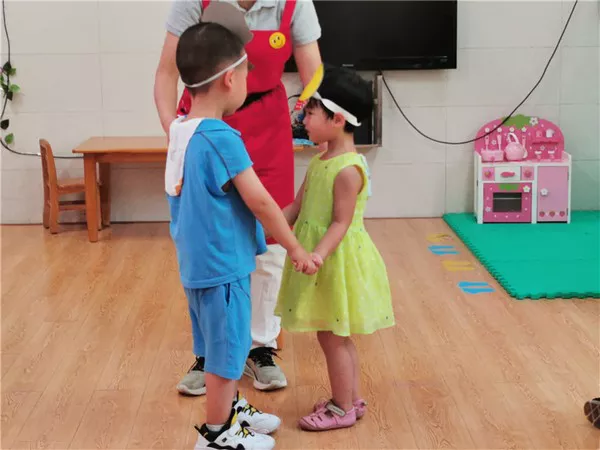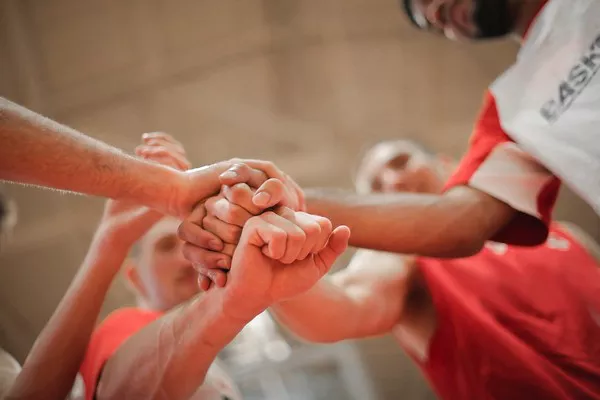In our fast-paced and interconnected world, the quest for meaningful connections has become more crucial than ever. Building a social circle and making new friends contribute significantly to personal well-being and happiness. Whether you’re in a new city, transitioning through life stages, or simply looking to expand your social network, the art of making friends is a valuable skill. In this article, we explore the various avenues and strategies to connect with others and build lasting friendships.
Embrace Your Interests: Join Clubs and Groups
One of the most effective ways to make new friends is to align your social activities with your interests. Joining clubs, groups, or organizations centered around hobbies, passions, or causes you care about can provide a natural and enjoyable setting to meet like-minded individuals. Whether it’s a book club, a sports league, or a volunteer organization, shared interests create a strong foundation for building friendships. Attend local events or use online platforms to find groups that resonate with your passions, and you’ll likely discover a community of potential friends waiting to be explored.
Be Open to New Experiences: Attend Social Events
Being open to new experiences is a key element in the art of making friends. Attend social events, gatherings, or meetups in your community or workplace. This could include everything from networking events to parties, community fairs, or cultural celebrations. By exposing yourself to different social settings, you increase the likelihood of encountering diverse individuals with whom you might share common ground. Approach these events with an open mind, and you might find that the next friend is just a conversation away.
Leverage Online Platforms: Connect Virtually
In today’s digital age, online platforms provide an excellent avenue to meet new friends, especially if geographical or time constraints are a factor. Social media, community forums, and specialized friend-making apps offer a virtual space to connect with people who share your interests or are in a similar life stage. Engage in online conversations, participate in forums related to your hobbies, or join virtual events to meet individuals who can become friends in both the virtual and real worlds.
See Also: Which is more important love or friendship?
Foster Connections Through Existing Friends
Your current social circle can be a valuable resource for meeting new friends. Attend social gatherings organized by your existing friends and take the opportunity to expand your network. Friends often have friends with similar interests or backgrounds, and mutual connections can pave the way for organic introductions. Leverage your existing friendships to create a broader and more interconnected social circle.
Take Advantage of Workplace Opportunities
Workplaces can be excellent environments for forging new friendships. Colleagues provide a built-in social network, and casual conversations in the workplace can lead to deeper connections. Participate in workplace events, join office clubs or committees, and attend after-work gatherings. Building friendships at work not only contributes to a positive and collaborative work environment but also extends your social connections beyond the professional setting.
Be Approachable: Smile and Initiate Conversations
Approachability plays a crucial role in making new friends. A warm smile and a willingness to initiate conversations create a friendly and inviting atmosphere. Make eye contact, display positive body language, and be open to engaging with others. Simple gestures such as introducing yourself or asking open-ended questions can break the ice and pave the way for meaningful connections. Being approachable is a two-way street – it not only helps you make friends but also makes others feel comfortable approaching you.
Practice Active Listening and Genuine Interest
Building friendships goes beyond surface-level interactions. To truly connect with others, practice active listening and show genuine interest in their lives. When engaged in conversations, focus on what the other person is saying rather than formulating your response. Ask follow-up questions, express empathy, and share your own thoughts and experiences. Demonstrating genuine interest fosters a sense of connection and encourages others to open up, laying the groundwork for deeper friendships.
Participate in Educational Classes or Workshops
Enrolling in educational classes or workshops not only provides an opportunity for personal growth but also creates a conducive environment for meeting new friends. Whether it’s a language class, a fitness workshop, or an art seminar, shared learning experiences offer a natural platform for connection. Attendees often share a common interest in the subject matter, providing a built-in conversation starter and potential for forming lasting friendships.
Volunteer for a Cause You Care About
Volunteering is a powerful way to make a positive impact in your community while also meeting new friends who share similar values. Choose a cause that resonates with you, whether it’s environmental conservation, animal welfare, or community service. Volunteering provides a sense of purpose, and the collaborative nature of these activities creates opportunities to connect with like-minded individuals who are passionate about making a difference.
Utilize Professional Networking Opportunities
Professional networking events are not only avenues for career development but also spaces for making new friends. Attend industry conferences, seminars, or meetups related to your field. Engaging in conversations with professionals who share common career interests can lead to both professional connections and genuine friendships. Networking in a professional context offers the chance to meet individuals with diverse backgrounds and experiences.
Be Patient and Persistent
Building lasting friendships takes time and effort. Be patient and persistent in your pursuit of new connections. Friendships, like any meaningful relationship, require nurturing and mutual investment. It’s important to understand that not every interaction will result in a lifelong friendship, and that’s perfectly normal. Some connections may develop quickly, while others may take time to grow. Embrace the journey and stay open to the possibility of unexpected and fulfilling friendships.
Cultivate a Positive Mindset
Approaching the process of making new friends with a positive mindset is crucial. Be optimistic, open-minded, and embrace the potential for enriching connections. Cultivating a positive outlook not only makes you more approachable but also contributes to creating an environment where friendships can flourish. Positivity is contagious, and others are more likely to be drawn to individuals who radiate optimism and warmth.
Stay Authentic: Be Yourself
Authenticity is the cornerstone of genuine connections. Be true to yourself and let your personality shine. Pretending to be someone you’re not may lead to superficial connections that lack depth. Embrace your quirks, share your interests, and be open about your values. Authenticity attracts like-minded individuals who appreciate you for who you are, laying the foundation for friendships built on mutual understanding and acceptance.
Conclusion
In the tapestry of life, friendships add vibrant colors and meaningful patterns. The art of making friends involves a combination of intention, openness, and genuine connection. Embrace your interests, attend social events, leverage online platforms, and be approachable in various settings. Foster connections through existing friends, take advantage of workplace opportunities, and practice active listening. Participate in educational classes, volunteer for causes you care about, and utilize professional networking events. Be patient and persistent, cultivate a positive mindset, and, above all, stay authentic. In the pursuit of new connections, remember that friendship is a reciprocal journey, and the bonds you cultivate may lead to a lifetime of shared laughter, support, and meaningful moments.
Related topics:




























